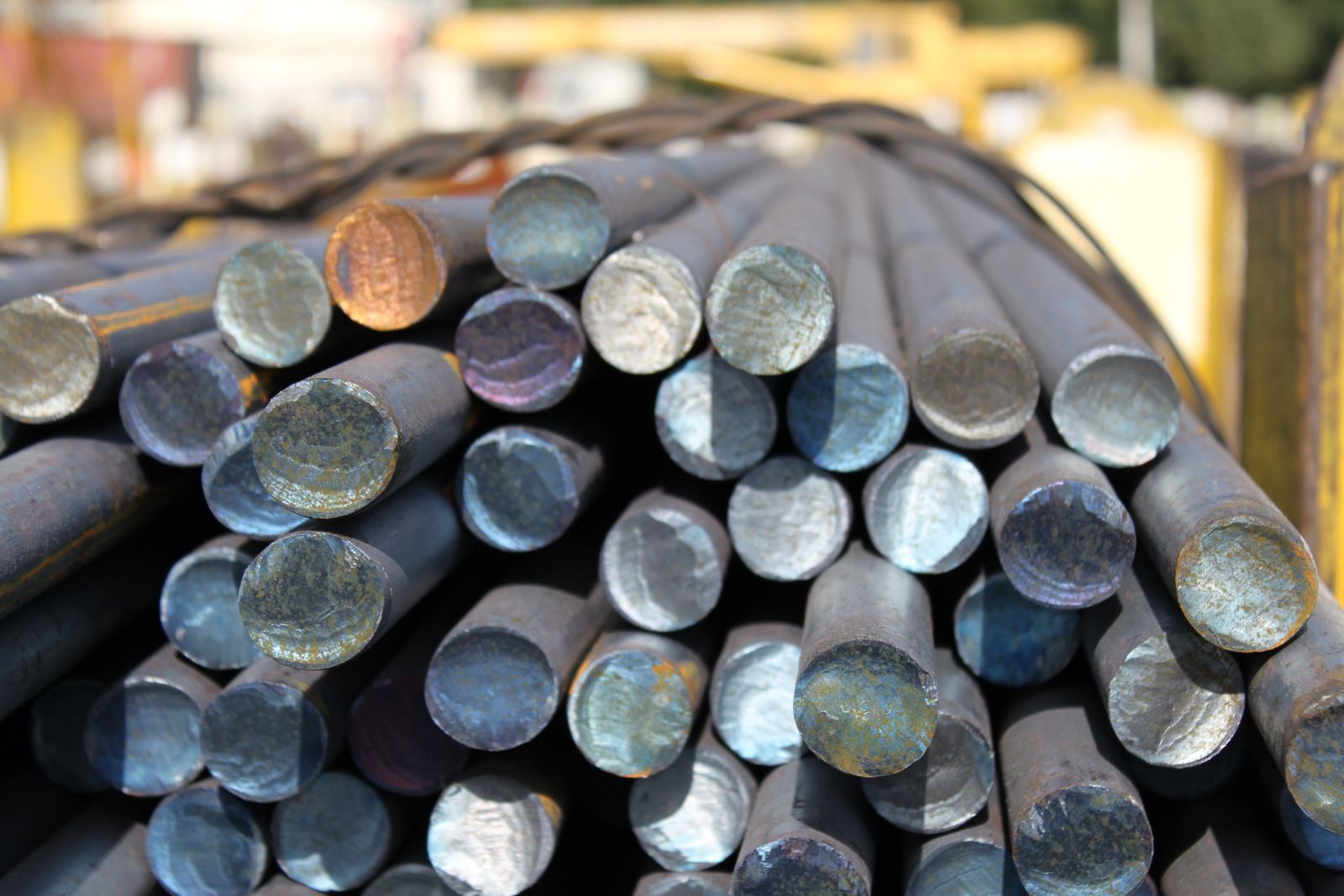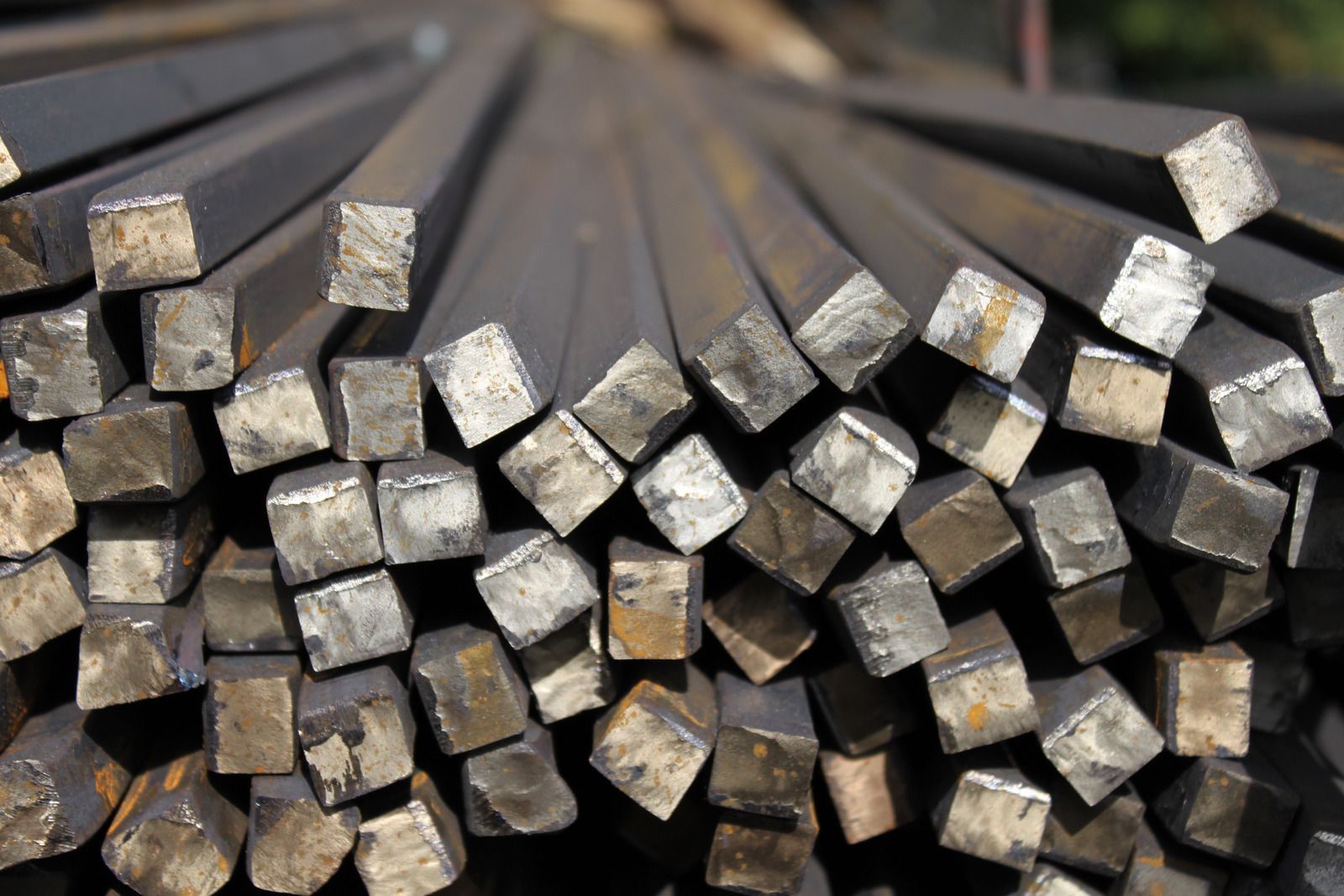Bar Rolling Service

Importance of Bar Rolling Service in Cincinnati, Ohio
Bar rolling services in Cincinnati, Ohio, provide essential support for a variety of industries and businesses. They are used to shape raw materials into the forms needed for production, from round bars and tubes to beams and rails. Bar rolling can also create complex shapes with multiple bends or curves, allowing manufacturers increased flexibility when creating products. Furthermore, bar rolling allows manufacturers to take advantage of cost savings due to its ability to reduce material waste by precisely cutting pieces that fit perfectly together.
This precision also ensures greater accuracy in projects since there is less room for error resulting in a higher-quality final product. Additionally, bar rolling provides an element of safety since it reduces the risk of injury due to sharp edges on unfinished metals or excessive force required when manually bending materials. For these reasons, bar rolling services have become increasingly important across many industries throughout Cincinnati, Ohio, and beyond.

Why Is Bar Rolling Important in Steel Fabrication?
Bar rolling is an essential process in steel fabrication. It helps to shape metal into the desired size or shape, often used in construction projects. Bar rolling improves the structural integrity of steel by increasing its strength and ductility. It also allows for more precise bends and shapes that cannot be achieved through other methods, such as cold forming or hot forming.
This makes bar rolling ideal for creating components with specific design requirements, such as automotive parts or structural frames. In addition, bar rolling can help to reduce manufacturing costs by reducing the amount of cutting necessary during production and saving on labor costs associated with repairs due to inaccurate measurements taken during assembly.

What Are Different Types of Bar Rolling?
Bar rolling is a metalworking process in which a hot or cold bar of material is passed through two rolls to reduce the thickness and increase its length. Different types of bar rolling include continuous, skelp, and shape methods. Continuous rolling involves passing the bar between two rotating cylinders, while skelp rolling uses an upper roll that holds it in place and lower rollers that move beneath it.
Shape rolling passes the bar into dies that form predetermined shapes such as angles or channels. Other variations of bar rolling are also available depending on the desired outcome, including threading, grooving, and upsetting. In each case, these processes allow for changes to be made quickly with minimal cost and production time saved over other traditional metal manufacturing techniques.
Harvey Brothers Inc.
- Top-Rated Bar Rolling Services in Cincinnati, Ohio
Harvey Brothers Inc.
is a top-rated bar rolling services provider in Cincinnati, Ohio, that specializes in providing our clients with excellent and reliable bar rolling services. We have the latest technology and equipment available to be able to create the perfect shape of steel bars for any application or project you may need us for. Our experienced staff can provide custom solutions tailored specifically to your needs while giving you fast turnaround times and competitive prices. Harvey Brothers Inc.'s commitment to customer satisfaction has earned us a stellar reputation throughout Cincinnati as one of the leading providers of bar rolling services. You can trust that we will deliver superior service every time without compromising quality or reliability.
FAQ's
What is bar rolling, and how does it differ from other metal forming processes?
Bar rolling is a hot or cold metalworking process where metal bars are passed through rollers to reduce thickness, refine shape, and enhance mechanical properties. Unlike forging or extrusion, rolling provides high dimensional accuracy, consistent surface finish, and uniform grain structure. At Harvey Brothers Inc., our precision bar rolling services are ideal for clients seeking tight tolerances, repeatable results, and improved material performance in structural and engineering applications.
What types of materials can you roll, and are there limitations?
We work with a variety of metals, including carbon steels, stainless steels, titanium, Inconel, and other specialty alloys. Each material behaves differently under pressure and temperature, so not all can be rolled to the same dimensions or tolerances. Our experienced team evaluates alloy composition, rolling temperature, and desired specs to ensure compatibility. For exotic or hard-to-roll materials, we offer custom consultations and test runs to mitigate risk and ensure product integrity.
Why is precision in bar rolling so critical?
Precision impacts everything—from downstream machining to final application performance. In aerospace, automotive, or defense applications, even a fractional deviation in roundness or straightness can lead to structural weaknesses or assembly issues. Harvey Brothers Inc. uses calibrated equipment, trained technicians, and real-time monitoring to achieve tight tolerances, typically within ±.001 inches, depending on material and size. Precision also minimizes waste and boosts yield for our clients.
What are the common challenges in bar rolling, and how do you overcome them?
Challenges include material warping, inconsistent deformation, cracking, and residual stress buildup. Our process counters these issues through controlled heating, gradual reduction passes, and in-line quality checks. We also pre-condition certain metals to enhance rollability and stress-relieve components post-processing if needed. Our investment in experienced technicians and specialized equipment ensures we meet stringent quality demands across a range of industries.
Do you offer custom sizes or only standard profiles?
We specialize in custom bar rolling. While standard sizes are available, most of our clients need tailored dimensions for specific applications. Whether you're looking for non-standard diameters, unique shapes like flats or hexes, or tapered transitions, Harvey Brothers Inc. can accommodate. We work closely with clients to determine feasibility, tooling requirements, and production timelines for custom projects—offering both short runs and high-volume scalability.
How do you ensure product quality and consistency?
Quality assurance is built into every phase of our process. We conduct incoming material inspections, in-process dimensional checks, surface inspections, and post-process testing. Our operators use precision tools and digital measurement systems to verify conformance at each stage. Harvey Brothers Inc. also maintains full traceability from raw material to final product—ensuring accountability, documentation, and compliance with industry standards like ASTM, AMS, and customer-specific specs.
What are the benefits of bar rolling over machining or casting?
Bar rolling offers higher yield, lower scrap rates, better surface finishes, and enhanced mechanical properties due to work hardening and grain refinement. Compared to machining from billets, rolling requires less material removal and reduces processing time. Unlike casting, it minimizes porosity and internal defects. For customers in high-performance sectors, these benefits translate into cost savings, stronger parts, and improved downstream performance.
What is your minimum order size or run quantity?
Harvey Brothers Inc. supports both prototype/small-batch runs and large production orders. For initial development or R&D phases, we’re flexible with low minimums to help you validate design and materials. Once specs are finalized, we can scale efficiently. Our facility is structured to provide cost-effective service regardless of volume—especially useful for manufacturers needing repeatable, contract-based fulfillment.
Can you roll bars to a specific hardness or tensile strength?
Yes. While the primary goal of rolling is dimensional control, it also impacts mechanical properties. Through controlled cold or hot working and post-processing (like heat treating or annealing), we can help achieve target tensile strength or hardness levels. We work closely with metallurgists and client engineers to determine the optimal combination of rolling parameters and post-treatment to meet strength, ductility, or hardness specs.
How does bar rolling impact lead times and overall production efficiency?
Bar rolling reduces the need for excessive machining and minimizes rework due to its dimensional accuracy. While the initial setup may involve lead time for tooling and test rolls, ongoing production is highly efficient. Harvey Brothers Inc. prioritizes on-time delivery through lean scheduling, experienced workforce, and a responsive approach to changes. For many clients, rolling improves total project turnaround and inventory flow.


